
MANUFACTURING activity in China's state-owned enterprises eased for the first time in six months in January, defying market expectations but indicating a still mild economic recovery.
Despite the slowdown, manufacturing activity is still expanding and economists said there wouldn't be any immediate policy adjustments.
The official Purchasing Managers' Index dropped 0.2 points from a month earlier to 50.4 in January, the China Federation of Logistics and Purchasing said yesterday. A reading above 50 is expansion.
Zhou Hao, an economist at Australia & New Zealand Banking Group Ltd, said the data suggested the recent economic pickup remained fragile.
"The official PMI declined unexpectedly in January," Zhou said. "Although it came in worse than expected, we believe that economic growth will still likely rebound to above 8 percent in the first quarter, supported by a renewed urbanization drive and fast investment growth in western and central provinces."
Zhou said the slowdown was partly a result of a sampling change, as there were now 3,000 companies taken into account instead of the previous 820.
Barclays economist Chang Jian said the decline in manufacturing activity was influenced by the Chinese New Year. "A review of the historical trend shows that the official PMI always posts a decline in January when the Chinese New Year falls in early to mid February," Chang said.
Li Zuojun, a senior official at the State Council's development research center, said China needed to further strengthen the foundations for this round of economic recovery, powered mostly by the stimulus rolled out in the middle of last year.
But all three economists said the retreat of January's official PMI was unlikely to shake the current accommodative monetary policy stance, especially before the Chinese New Year.
Component indexes showed that production came in lower at 51.3 in January from December's 52, but new orders edged up to 51.6 from 51.2.
Also yesterday, the HSBC Purchasing Managers' Index, which is weighted toward private and export-oriented companies, posted 52.3 last month, up from 51.5 in December.
New orders under the HSBC PMI also rose for a fourth consecutive month, and at a solid pace that was the strongest in two years.
Qu Hongbin, chief economist for China at HSBC Holdings Plc, said there would be increasing signals of recovery in the coming months, with steady investment growth led by infrastructure projects, an improvement in labor market conditions boosting spending and ongoing restocking lifting production.
Both sets of data add to signs of possible improvement in other major global economies, according to The Associated Press.
The European Union's main economic sentiment indicator rose in January for a third month for the 17 countries that use the euro. And Japan's government reported this week that December industrial production picked up in a sign the world's third-largest economy may be stabilizing.
China's manufacturing data is a positive sign for the trading partners that supply its factories with components and commodities ranging from iron ore to rubber, according to AP.
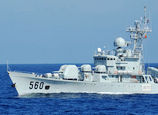


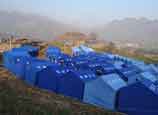
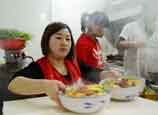
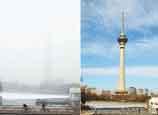


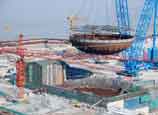
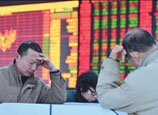






 H.K. limits visitors' buying of infant formula
H.K. limits visitors' buying of infant formula


![]()
